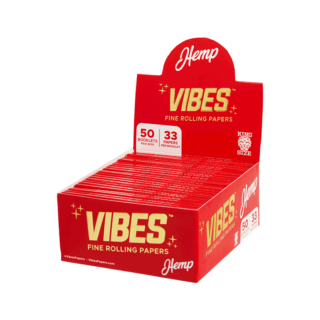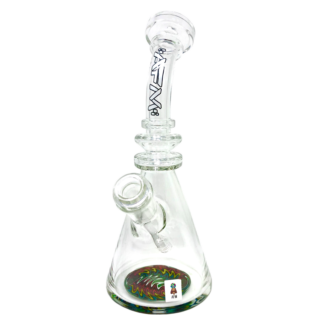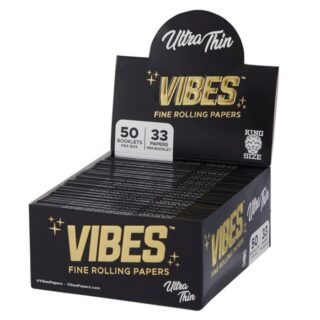
In the world of cannabis, there are two primary ways to start growing your plants, either from seeds or from clones. Tissue culture is another method, but for all intents and purposes, tissue culture can be thought of as a clone, as the plant retains the same traits as the parent. The growth journey is quite different depending on which method you choose, so which one should you opt for? And what are the trade-offs? That’s what we’ll be exploring in this article.
What Exactly Is A Clone?
If you’ve got a few grows under your belt you can probably skip this one, but if you’re new to growing it’s vital to understand what a clone is and how they differ from a seed plant.
A clone is a cutting that’s taken from a cannabis plant and then put in a suitable environment to root. Once the cutting has rooted, it can grow like any other plant, often with more vigor than a seed due to its larger root structure, especially in its younger life. By using clones, you can keep a single mother plant and take cuts off of it regularly, rooting those cuts and growing out plants in quick succession.
What makes clones so special is that they retain the same genetic makeup as the plant the cutting was taken from and resulting cuts will express like the mother. Unlike seeds, where the expressions of the plant differ between each seed that’s planted, even from the same strain.
The Decision Between Stability and Exploration
Clones are known for their stability, in the sense that you kind of know what you’re going to get each time you run it. This is why only the best plants should be kept and cloned, otherwise, you will always be limited to the ceiling that plant had.
This strength is also its weakness though, not everyone wants to run the same strain time and time again, and while this approach is fairly common for growers with an established customer base who want a particular strain, it can feel quite limiting to those who grow for exploration.
I’d consider myself an explorative grower, constantly eager to see what types of expressions lie in the seeds. After all, cannabis seeds are a little like opening a pack of Pokemon cards – you have no idea what you’re going to pull. You could discover a combination of traits that no one else has managed to find from that strain, a completely unique unicorn that would be sought after by other growers, a plant that exceeds the quality of other clones you’ve bought.
Clones are an excellent choice for growers who have limited space and can’t risk finding low-quality genotypes in seeds. And that’s the reality of seed hunting. You’re going to find a quality plant here and there, but most aren’t going to be clone-worthy. It becomes a numbers game where the most seeds hunted through are usually going to give the best results, assuming they come from similar strength gene pools.
And here lies the trick…
If you pop beans instead of running clones – make sure that the seeds you’re running are high quality, made from renowned cuts that have been tried and tested. And now you may be starting to see the synergy here. How both seeds and clones play their own important role in the growing cycle.

It All Starts With a Seed
Seeds and clones both have their place, but you cannot have a clone without a seed. For this reason, seeds should be considered the go-to choice for growers looking to find something unique and different. That’s where pheno hunting comes into play, the process of looking through the various expressions of seed plants and determining which is worth holding onto as a clone and subsequent mother plant.
These are the types of things one usually considers when deeming whether a seed plant is worth turning into a mother:
- Good branching structure
- Unique, or strong terps
- A good yield
- Distinct or striking colouration
- Resistance to pests
- Resistance to molds
- Good root structure
- Potent
If you’re growing solely for the art, and you enjoy exploring all the different facets of the plant, I’d recommend starting with seeds for that excitement of finding something different, potentially a plant expression that no one else has come across in that strain.
However, if you’re someone who prefers having stability, then a clone is definitely the best way to go. The nice thing about clones is that once you buy one, they can sit in your library as a mother until you don’t want it anymore, which will save you thousands of rands that would have otherwise gone to seeds.
But we should never forget that no matter how outstanding the clone is, it still needed someone to pop a seed in order to find it, and we should always acknowledge the strengths that seeds have.
Know Which Clone Banks To Trust: It’s Essential!
Before you rush off to buy a clone from a random online store, please be aware of the risks that come with clones, especially in today’s market. I’ve taken in cuts before that came with diseases and pests. This is a common problem from many clone sellers, who have found the clone market to be very profitable when integrity is set aside. Some fairly well-known clone sellers have even sold cuts that haven’t been properly tested – and that’s the least of the concerns when dealing with unethical clone sellers.
Other risks when buying cuts include:
- Crop-killing diseases like HLVd
- Molds and mildews that can spread to other plants
- Spider mites, aphids or thrips
- Lack of selection leading to poor results
This is why it’s essential to only buy from trusted clone banks who have thoroughly tested the plants they’re selling. Speak with other growers for recommendations. But take recommendations with a grain of salt, as the loudest voices in marketing aren’t always representative of the best quality products.
Conclusion
In the end, the choice between seed and clone is a personal one. Neither is inherently better than the other, instead each having their own strengths. Seeds are where it all starts, and where the most unique plants will be found, this lets you pick strains based entirely off your own preferences. In contrast, clones have been selected in accordance with the tastes of that who found them. But this has benefits too, as a good clone selector can do most of the hard work for you, selecting a plant that yields well, tastes good and has been tested for resistance.





Leave a Reply